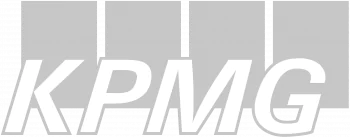If you’ve scheduled an interview for your next tech hire, you’re probably hoping to learn more than what they provided on their resume and application. The one-on-one time with this candidate should be met with adequate preparation, including a full set of well-planned interview questions. Learn more about how asking the right technical interview questions can help you find your next new tech hire.
Why Are Tech Interview Questions Important?
With so many applicants stuffing their resumes with technical skills, certifications, and job history details, it can be difficult to understand how that information translates to real-life aptitude. Soft skills, for example, can be better discovered through an in-person job interview.
By asking questions, you can get a better feel for whether a candidate has developed these skills or not. They can also tip you off to interview red flags. How they answer could alert you to problems in the candidate’s interpersonal qualifications or inconsistencies in their reported experience. You’re more likely to spot these issues if you have a strong set of questions.
Example Technical Interview Questions to Ask Candidates
While there’s no one-size-fits-all list of questions that you must ask every applicant, a set of sample questions can prove very useful. These can be customized for the role you seek to fill, so choose the ones that best represent the seniority of the position.
Entry-Level Roles
These entry-level technical interview questions are best suited for those just entering an IT career. They’re designed for new graduates and applicants with limited job experience, and they can help you discover the candidate’s potential and any possible onboarding issues they may present.
- Share the experience you have with each programming language listed on your resume.
- Which languages are you most comfortable using in a daily role?
- What would you consider your core competency amongst the technical skills on your resume?
- Is there a particular field you are interested in that you would like to explore?
- Describe how you would handle a technical difficulty beyond your experience or training.
- Where do you go for new skills or advice?
Use the answers to their questions to then ask related, leading questions. Also, be prepared to ask them to clarify and reveal their thought process if they appear uncertain with their response.
Senior-Level Roles
With much more experience under their belt, the senior developer’s interview questions will be more technical and allow for some nuance. They deal with leadership, time-management, and the problem-solving process that comes with those duties, so there may not be a clear-cut right answer for each query. Some common questions include the following:
- Are you comfortable reviewing work and giving feedback? Talk about a time when you had to confront someone over issues with their work.
- Name the most significant improvement you’ve made to a prior IT process, product, or infrastructure. Why do you think it worked out as well as it did?
- Your role may require you to speak with those unfamiliar with technical language. What approach would you use to ensure clear, concise communication to these groups?
- Explain a time that you were able to coach another person on a tool, language, or process. Why do you think you were successful in helping them learn?
Assignment Review
Having the candidate complete a sample tech assignment is often part of a thorough vetting process, and it’s useful to have a set of questions you can ask at the end. This review can work with your own employees, as well as helping discover the experiences of your candidates.
- What were the biggest obstacles to this assignment? How did you overcome them?
- If you could spend as much time or money as you wanted on this project, how would you have approached it differently?
- How would you describe the importance of this project to your boss or other stakeholder?
- What do you think was the most important objective of the project? Do you feel that it was met in the best way possible? If not, what would you change?
Resume Review
Of all the questions a candidate may answer, they should be the most comfortable when answering interview questions based on their resume. These shouldn’t be a surprise to them, but how they answer matters.
- Given the projects listed on your resume, which was your favorite? Why did you enjoy it so much?
- Tell me about the team that helped you with this project. What was your role within the group?
- If you could change any past project to make it better, what you would change and why?
- Is there a project that you would like to repeat?
How to Conduct a Technical Interview
Computer science involves a lot of exacts, so make your questions easy to answer and don’t try to trick your candidates. Additional tips include:
- Ask open-ended questions.
- Feel free to skip questions that don’t seem to apply or that were previously answered in other questions.
- Give your applicant time to think about their answer and don’t interrupt or attempt to answer for them.
- If you feel that a question has gone badly, give them another opportunity by reframing the questions. You want them to present their best.
Interviewing Tips for Technical Roles
It’s essential that the person doing the interviewing is familiar with the role and the qualifications of the position. Understand the technology being used, so that you can ask additional follow-up questions and be confident in the answers given.
One of the best technical job interview tips is to ask questions that give you insight into not just the position at hand, but the one above it in seniority. Your goal is to establish competent teams that can move up in roles as they become available. As you interview, look for signs that a candidate loves learning, beyond the job; ask about their technical passions and hobbies, too.
Red Flags for Interviewers
A lot of the interview process requires your gut feeling with a candidate, but these signs can tell you it may not be a good fit:
- Disinterest in the field, technologies, or projects being discussed
- Inability to expand upon and paraphrase the items listed on their resume
- Inconsistency between what the resume says and what their answers reveal
- Demonstration of “passing the buck” or blaming others for failures
- Reluctance to think big about future projects
While any one of these signs may not be enough to discount a candidate, it may be enough to warrant a second interview or additional check-ins with their references.
Are you interested in hiring new tech talent for your company? Comeet can help. Learn more about our flexible plans and prices now!





























